- Who We Are
- Topics
- By Subject Area
- dummy
- By Level
- Projects
- Projects Column 1
- Agency by Design
- Aligned Programs for the 21st Century
- Artful Thinking
- Arts as Civic Commons
- Causal Learning Projects
- Center for Digital Thriving
- Citizen-Learners: A 21st Century Curriculum and Professional Development Framework
- Creando Comunidades de Indagación (Creating Communities of Inquiry)
- Creating Communities of Innovation
- Cultivating Creative & Civic Capacities
- Cultures of Thinking
- EcoLEARN Projects
- Educating with Digital Dilemmas
- Envisioning Innovation in Education
- Global Children
- Growing Up to Shape Our Place in the World
- Projects Column 2
- Higher Education in the 21st Century
- HipHopEX
- Humanities and the Liberal Arts Assessment (HULA)
- Idea Into Action
- Implementation of The Good Project Lesson Plans
- Inspiring Agents of Change
- Interdisciplinary & Global Studies
- Investigating Impacts of Educational Experiences
- JusticexDesign
- Leadership Education and Playful Pedagogy (LEaPP)
- Leading Learning that Matters
- Learning Innovations Laboratory
- Learning Outside-In
- Making Ethics Central to the College Experience
- Making Learning Visible
- Multiple Intelligences
- Navigating Workplace Changes
- Next Level Lab
- Projects Column 3
- Out of Eden Learn
- Pedagogy of Play
- Reimagining Digital Well-being
- Re-imagining Migration
- ROUNDS
- Signature Pedagogies in Global Education
- Talking With Artists Who Teach
- Teaching for Understanding
- The Good Project
- The Studio Thinking Project
- The World in DC
- Transformative Repair
- Visible Thinking
- Witness Tree: Ambassador for Life in a Changing Environment
- View All Projects
- Projects Column 1
- Resources
- Professional Development
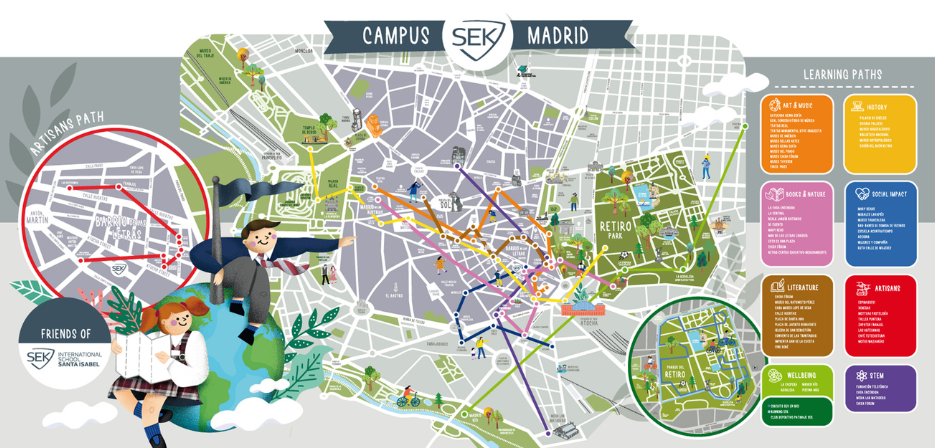
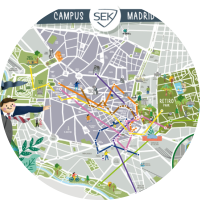
Learning Outside-In
Exploring how qualities of out-of-school learning experiences impact student well-being.
How do the qualities of out-of-school learning experiences support student learning and well-being? Among the critical post-pandemic challenges schools face are issues of student well-being and where learning can happen. Research suggests that prolonged isolation, social distancing, and remote learning have contributed to unprecedented declines in adolescent mental and physical health around the globe. During the pandemic lockdowns many forced schools and educators to relocate learning to out-of-school places, such as online learning at home or outdoor, small group instruction. As the danger of COVID-19 abated, many schools returned to teaching and learning as usual. However, it has become clear that restoring and cultivating student well-being –learners’ physical health as well as their sense of joy, agency, connectedness, and belonging– continues to be a difficult in many classrooms As schools scramble to understand how to best address students’ inner states of well-being, out-of-school experiments from the pandemic may offer some important insight.
The Learning Outside-In project at Project Zero’s Designing Learning Places (DLP) Lab aims to examine how outdoor learning experiences support students’ inner states of well-being. During the pandemic some schools developed out-of-school learning experiences that offered interesting opportunities to connect with nature, know their neighborhoods, and make their learning visible to others in their community. These experiences, coupled with research on the impact nature and neighborhoods have on well-being, point educators to consider a provocative pathway forward: restoring and developing students’ well-being may be best done by engaging learners in out-of-school pedagogical places in their communities.
One school network with experience is SEK Education of Spain. During the pandemic, leaders began exploring how to better create community connections and learning opportunities. In 2021, with the help from parents and community leaders, educators at the SEK Santa Isabel school in Madrid created “learning paths” in which students explored their surrounding communities and environments with the aim to develop a range of outcomes, including well-being. The pathways were so successful that SEK Santa Isabel is expanding this approach and other SEK schools in the network are following their inspiration by designing learning pathways of their own. These SEK educators, along with researchers, faculty and students of School of Education at Universidad Camilo José Cela (UCJC), are interested and learning in how their approach may offer guidance to other educators and how they can better document evidence of student well-being from these learning pathways. Beginning in the summer of 2023, this multi-year project with Project Zero will aim to analyze the impacts these experiences have on student sense of agency, belonging, curiosity and delight. The project aims to produce tools for educators to use as they design and assess community-based learning experiences and well-being.
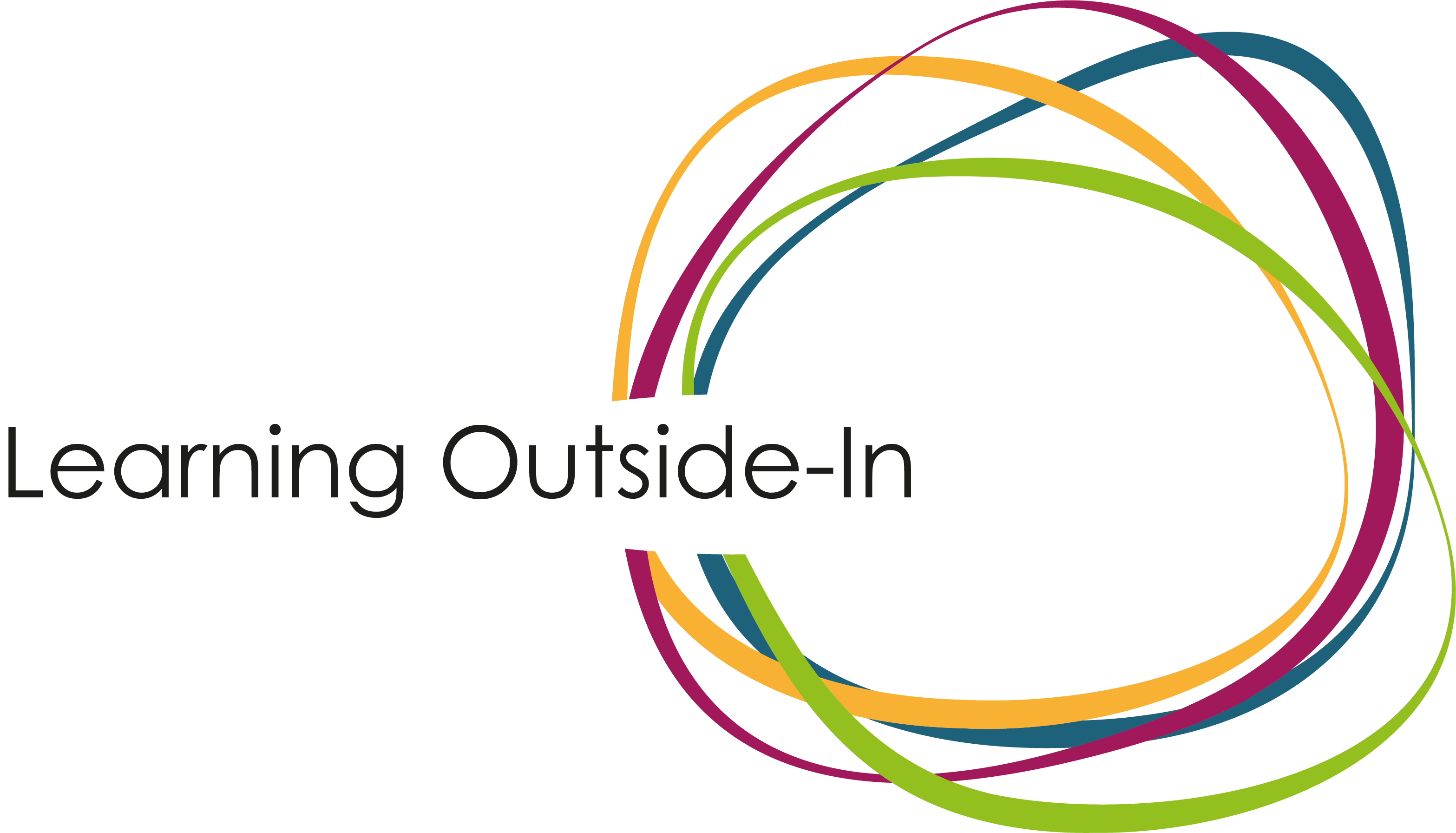
Project Info
Funder:
Fundación Universidad Camilo José Cela


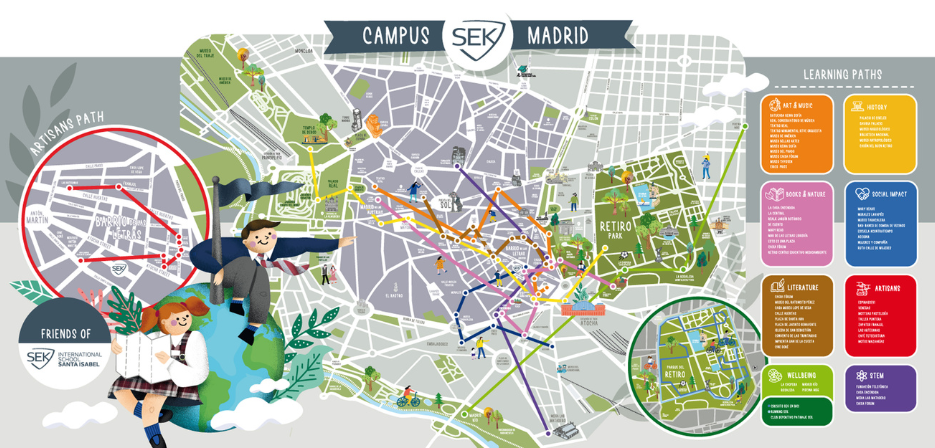
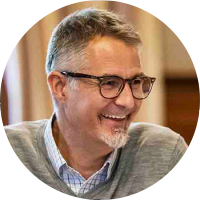
-
-
-
Support PZ's Reach